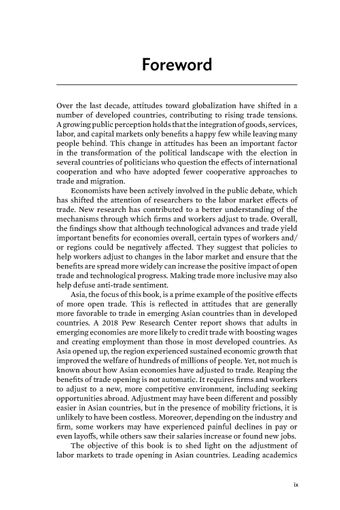Export Boom, Employment Bust? The Paradox of Indonesia’s Displaced Workers, 2000–2014

- By: World Trade Organization
- Source: Trade Adjustment in Asia , pp 141-175
- Publication Date: September 2019
- DOI: https://doi.org/10.30875/faf52362-en
- Language: English
Charles Dickens’ phrase “it was the best of times; it was the worst of times” is for many Indonesian workers an apt summary of their experience during the early 2000s. While the national economy and especially its resource-exporting sectors enjoyed trade-driven growth of unprecedented magnitude and duration, millions of blue-collar workers and labor market entrants found themselves paradoxically sidelined from well-paid jobs in manufacturing, and instead forced to seek livelihoods in low-paid, low-skill service sector jobs. This happened at a time when many Asian countries, led by the People’s Republic of China, were enjoying (continued) expansion of manufacturing trade by participating in global production networks, which in turn created better employment opportunities for their less-skilled agricultural workforces. For many Indonesians, on the other hand, the boom was a period of stagnating real wages and diminished earnings prospects, even as national income and spending surged ahead and overall expectations for the future became increasingly bright. For workers, the consequence of job displacement due to structural change would have been particularly severe during this time.
-
From This Site
/content/books/9789287050229s004-c004dcterms_subject,pub_countryId-contentType:WorkingPaperSeries -contentType:Periodical -contentType:BookSeries -contentType:ReportSeries105


